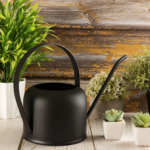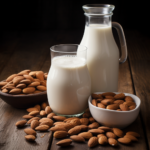What is Ginger Black Tea?

Ginger black tea is a type of tea made by infusing black tea leaves with ginger root. Black tea, derived from the Camellia sinensis plant, is known for its rich flavor and dark color, while ginger adds a spicy and slightly sweet kick to the brew. The combination of these two ingredients results in a beverage that is both comforting and invigorating, perfect for any time of day.
The exact origins of ginger black tea are not well-documented, but it is believed to have originated in Asia, where both ginger and tea have been cherished for centuries. Ginger has a long history of use in traditional medicine for its digestive and anti-inflammatory properties, while tea has been enjoyed for its refreshing taste and potential health benefits.
Ginger black tea benefits
Ginger black tea isn’t just a delicious beverage; it’s also packed with a plethora of health benefits that can boost your well-being. Let’s dive into the world of ginger black tea benefits and discover why this flavorful brew deserves a spot in your daily routine.
1. Digestive Support:
If you ever feel a bit queasy or bloated after a meal, ginger black tea might be your new best friend. Ginger has been used for centuries to aid digestion by soothing the stomach and reducing nausea. Drinking a cup of ginger black tea after meals can help alleviate discomfort and promote healthy digestion.
2. Immune System Boost:
Ginger and black tea both contain powerful antioxidants that support a healthy immune system. These antioxidants help to fight off harmful free radicals in the body, reducing the risk of infections and illnesses. Sipping on ginger black tea regularly can give your immune system the extra boost it needs to keep you feeling your best.
3. Anti-inflammatory Properties:
Inflammation is a natural response in the body, but chronic inflammation can lead to various health issues. Ginger contains compounds with potent anti-inflammatory properties that can help reduce inflammation and alleviate symptoms of conditions like arthritis and inflammatory bowel disease. Incorporating ginger black tea into your daily routine may help keep inflammation in check.
4. Relieves Menstrual Discomfort:
Ladies, listen up! Ginger black tea could be your new go-to remedy for menstrual cramps. Ginger has been traditionally used to alleviate menstrual discomfort, thanks to its ability to relax muscles and reduce inflammation. Drinking ginger black tea during your period may help ease cramps and other symptoms, allowing you to feel more comfortable and relaxed.
5. Supports Weight Management:
If you’re looking to shed a few pounds or maintain a healthy weight, ginger black tea can be a valuable ally. Ginger has been shown to boost metabolism and increase fat oxidation, making it easier to burn calories and lose weight. Additionally, black tea contains caffeine, which can help suppress appetite and increase energy expenditure. Enjoying a cup of ginger black tea between meals can help keep cravings at bay and support your weight loss goals.
6. Enhances Brain Health:
Did you know that ginger black tea could also benefit your brain? Both ginger and black tea contain compounds that have been linked to improved cognitive function and reduced risk of neurodegenerative diseases like Alzheimer’s. By promoting healthy blood flow to the brain and protecting against oxidative stress, ginger black tea may help keep your mind sharp and your memory strong as you age.
7. Boosts Energy Levels:
Need a pick-me-up without the jitters? Look no further than ginger black tea. The caffeine content in black tea provides a gentle energy boost that can help you stay alert and focused throughout the day. Unlike coffee, which can sometimes lead to caffeine crashes, black tea provides a more sustained source of energy without the accompanying crash, making it the perfect choice for a mid-afternoon boost.
8. Heart Health Helper:
Looking to keep your heart happy? Ginger black tea might be your new buddy. Research suggests ginger may help improve blood circulation, lower cholesterol, and even regulate blood pressure. While not a replacement for a healthy lifestyle, incorporating this tea into your routine could be a delicious way to support your heart health.
Bonus Perks:
The goodness doesn’t stop there! Ginger black tea may also:
- Support your immune system: Rich in antioxidants, ginger could help your body fight off illness.
- Aid weight management: Studies suggest ginger may boost metabolism and support healthy weight management.
- Help with cold symptoms: Feeling under the weather? Ginger’s warming properties and potential to soothe sore throats could offer some relief.
The beauty of ginger black tea lies in its versatility. Enjoy it hot or iced, with a squeeze of lemon for a refreshing twist, or a touch of honey for added sweetness. Experiment with different blends and brewing methods to find your perfect cup.
Steps to Make Ginger Black Tea at Home
Are you ready to embark on a journey to create your own flavorful and comforting cup of ginger black tea? Look no further! Follow these simple steps to brew the perfect batch of this delightful beverage in the comfort of your own home.
Ingredients You’ll Need:
- Black tea bags or loose black tea leaves
- Fresh ginger root
- Water
Optional: Honey, lemon, or other sweeteners and flavorings
Step 1: Gather Your Ingredients
Before you begin, make sure you have all the ingredients you need on hand. Choose your favorite black tea variety, whether it’s in tea bags or loose leaves, and select a fresh ginger root for maximum flavor.
Step 2: Prepare the Ginger
Start by peeling and slicing the ginger root into thin slices. You’ll need about 1-2 slices of ginger per cup of tea, depending on how strong you want the ginger flavor to be. If you prefer a milder taste, you can also grate the ginger instead of slicing it.
Step 3: Boil the Water
Fill a kettle or pot with fresh, cold water and bring it to a boil on the stove. Once the water reaches a rolling boil, you’re ready to move on to the next step.
Step 4: Steep the Tea
If you’re using tea bags, place one tea bag in a cup or mug for each serving of tea you plan to make. If you’re using loose tea leaves, add about 1 teaspoon of leaves per cup of tea to a teapot or infuser. Next, add the sliced ginger or grated ginger directly to the cup or teapot.
Step 5: Pour the Hot Water
Carefully pour the boiling water over the tea bags or loose tea leaves and ginger. Use a spoon to gently press the tea bags or stir the tea leaves to ensure they are fully submerged in the water.
Step 6: Steep to Perfection
Cover the cup or teapot with a lid or a small plate to trap the heat and allow the tea to steep. Let the tea steep for 3-5 minutes, depending on how strong you like your tea. Keep in mind that black tea can become bitter if steeped for too long, so it’s best to taste-test it as it brews.
Step 7: Add Sweeteners and Flavorings (Optional)
Once the tea has finished steeping, remove the tea bags or strain out the tea leaves if you used loose leaves. If desired, you can add honey, lemon, or other sweeteners and flavorings to enhance the taste of your ginger black tea.
Step 8: Enjoy Your Homemade Ginger Black Tea
Pour yourself a cup of freshly brewed ginger black tea and savor every sip of its delightful flavor and comforting warmth. Sit back, relax, and enjoy the satisfaction of knowing that you’ve created a delicious beverage right in your own kitchen.
Side Effects of Black Ginger Tea
Black ginger tea is a popular beverage enjoyed by many for its robust flavor and potential health benefits. However, like any other food or drink, it’s essential to be aware of potential side effects that may occur, especially if consumed in excess or by individuals with certain health conditions. Let’s explore some common side effects of black ginger tea in simple and easy language.
1. Stomach Irritation:
One potential side effect of black ginger tea is stomach irritation, particularly for individuals with sensitive stomachs or gastrointestinal issues. The spicy nature of ginger combined with the tannins found in black tea may exacerbate symptoms such as heartburn, indigestion, or stomach upset in some people.
2. Interference with Medications:
Ginger, a key ingredient in black ginger tea, has been shown to interact with certain medications. It may interfere with blood-thinning medications like warfarin or aspirin, as well as medications for diabetes or high blood pressure. If you’re taking any prescription medications, it’s essential to consult with your healthcare provider before consuming black ginger tea to avoid potential interactions.
3. Allergic Reactions:
While rare, some individuals may experience allergic reactions to ginger or black tea. Symptoms of an allergic reaction may include skin rashes, itching, swelling, or difficulty breathing. If you have a known allergy to ginger or black tea, it’s best to avoid consuming black ginger tea altogether to prevent adverse reactions.
4. Blood Sugar Fluctuations:
For individuals with diabetes or those at risk of hypoglycemia (low blood sugar), black ginger tea may cause fluctuations in blood sugar levels. Ginger has been shown to lower blood sugar levels, which can be beneficial for some people but potentially harmful for others, especially if not monitored closely. If you have diabetes or blood sugar concerns, it’s crucial to monitor your blood sugar levels regularly and consult with your healthcare provider before drinking black ginger tea.
5. Pregnancy Concerns:
While ginger is often recommended for relieving nausea during pregnancy, it’s essential for pregnant women to consume it in moderation. Excessive intake of ginger, such as drinking large quantities of black ginger tea, may pose risks during pregnancy, including potential effects on fetal development or increased risk of miscarriage. Pregnant women should consult with their healthcare provider before consuming black ginger tea to ensure it’s safe for them and their baby.
Read Also – Robusta Banana Calories
Is Ginger Black Tea Safe During Pregnancy?

The safety of consuming ginger black tea during pregnancy largely depends on several factors, including the amount consumed and individual health considerations. Let’s break it down:
Ginger: Ginger is often touted for its potential benefits during pregnancy, including relieving nausea and aiding digestion. However, some healthcare professionals recommend limiting ginger intake to no more than 1 gram per day during pregnancy to avoid potential side effects. It’s essential to consult with your healthcare provider before consuming ginger, especially if you have any underlying health conditions or concerns.
Black Tea: Black tea contains caffeine, albeit in lower amounts compared to coffee. While moderate caffeine consumption (about 200 milligrams per day) is generally considered safe during pregnancy, excessive caffeine intake should be avoided. Too much caffeine can potentially lead to complications such as low birth weight or miscarriage.
Potential Benefits of Ginger Black Tea During Pregnancy:
When consumed in moderation, ginger black tea may offer some potential benefits for pregnant women:
Nausea Relief: Ginger is renowned for its anti-nausea properties, which can be particularly helpful for pregnant women experiencing morning sickness.
Digestive Support: Ginger may aid in digestion and alleviate gastrointestinal discomfort, which is common during pregnancy.
Hydration: Staying hydrated is essential during pregnancy, and drinking ginger black tea can contribute to your daily fluid intake.
Precautions and Considerations:
While ginger black tea can be enjoyed during pregnancy, it’s crucial to keep the following precautions in mind:
Consult Your Healthcare Provider: Before incorporating ginger black tea into your pregnancy diet, discuss it with your healthcare provider. They can provide personalized advice based on your individual health status and pregnancy.
Moderation is Key: As with any food or beverage during pregnancy, moderation is key. Stick to recommended guidelines for ginger consumption and monitor your caffeine intake.
Quality and Safety: Ensure that the ginger black tea you consume is prepared hygienically and sourced from reputable sources to minimize the risk of contamination.
Read Also – BENEFITS AND DISADVANTAGES OF CYCLING
FAQs
What are the ginger black health benefits?
Ginger black tea offers health benefits like aiding digestion, boosting immunity, and providing anti-inflammatory properties.
How many calories in ginger black tea?
The calorie content in ginger black tea can vary based on factors like added sweeteners or milk, but typically, a cup contains around 0-5 calories.
What is black ginger tea?
Black ginger tea is a flavorful beverage made by infusing black tea leaves with ginger root, offering a blend of robust flavor and potential health benefits.
What are the side effects of black ginger tea?
Side effects of black ginger tea may include stomach irritation, interference with medications, allergic reactions, blood sugar fluctuations, and concerns for pregnant women if consumed excessively.
Is ginger tea safe daily?
Ginger tea is generally safe for daily consumption in moderate amounts, but individuals with certain health conditions or allergies should consult with a healthcare provider before consuming it regularly.







